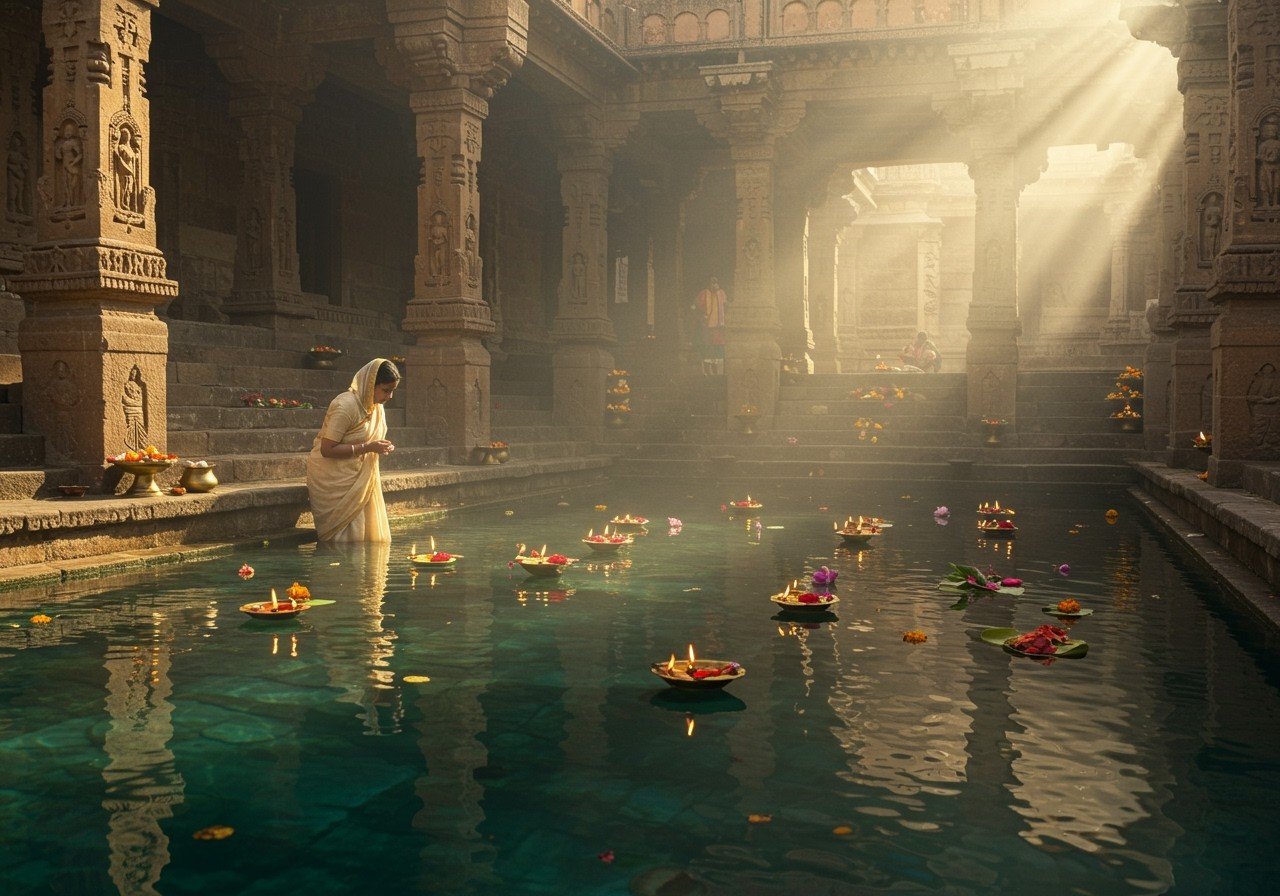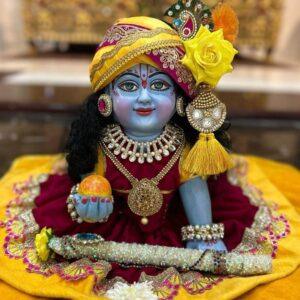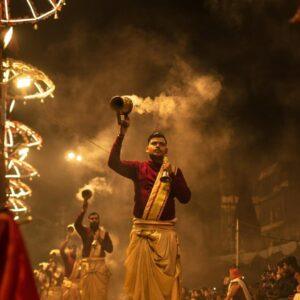
Ritual baths, known as ‘Snāna’, hold immense significance in Hinduism. These practices, deeply rooted in history, date back to the Indus Valley Civilization, specifically the Great Bath at Mohenjo-Daro. Over time, these rituals have evolved but continue to preserve their spiritual and physical benefits, reflecting Hindu beliefs in daily life.
Ritual Baths in Hinduism
Different Types of Ritual Baths:
- Abhisheka: Pouring water or other sacred substances over deities. This act is seen as an offering and a way to honor the divine.
- Pavitra Snāna: Purification baths before temple visits or festivals. This cleansing prepares individuals to enter sacred spaces or participate in religious observances.
- Maha Snāna: Extensive cleansing during significant events like the Kumbh Mela. These large-scale baths are believed to wash away sins and karmic impurities.
Occasions for Ritual Baths:
- Religious festivals like Kumbh Mela, Diwali, and Holi
- Before entering temples and sacred spaces
- Life milestones such as birth, marriage, and death
Symbolism and Elements:
- Water: Represents purity, life, and the divine feminine energy.
- Milk, Yogurt, Ghee, Honey: Symbolize prosperity, nourishment, and spiritual purification.
Sacred Rivers:
- Ganges
- Yamuna
- Godavari
The Significance of Water in Hindu Ceremonies
Purifying Role of Water:
- Daily prayers (Agni Hotra): Water is used for cleansing before and during prayers.
- Temple rituals: Water plays a crucial role in various temple ceremonies and offerings.
- Puja ceremonies: Water is used to purify the space, offerings, and participants.
Sacred Water Bodies (Tirtha):
- Pilgrimages to sacred rivers and lakes are considered highly meritorious.
Achamana Ritual:
- Sipping water and chanting mantras for purification before prayers and rituals.
Antyesti (Funeral Rituals):
- Water is used to cleanse the body of the deceased and symbolize the transition of the soul.
Connection to Hindu Cosmology:
- Sapta Sindhu (seven sacred rivers) play a significant role in Hindu mythology and beliefs.
Spiritual Purity and Cleansing Practices
Concept of Sattva (Purity):
- Achieved through physical and spiritual cleanliness, promoting inner peace and harmony.
Morning Baths (Pratah Snāna):
- Essential in daily routines, preparing the mind and body for the day ahead.
Nitya Karma (Daily Duties):
- Include ritual baths for spiritual discipline and purification.
Fasting (Vrata):
- Often accompanied by cleansing rituals to purify the body and mind.
- Find more insights on Hindu fasting in this informative blog post: Hindu Fasting: Purpose, Practices, and Significance
Use of Natural Elements:
- Herbs, oils, and scents enhance the cleansing experience and promote holistic purification.
Pranayama (Breathing Exercises):
- Complement external cleansing with internal purification practices.
- Explore the power of mantras in daily life: Mantras: Their Power and Purpose in Daily Life
Modern Adaptations and Relevance
Influence of Urbanization:
- Modern bathrooms and shower routines incorporate elements of traditional cleansing practices.
- Sacred herbs and essential oils are added to shower gels and bath salts.
Balancing Tradition and Modernity:
- Hindus adapt their cleansing rituals to modern lifestyles while preserving the core values.
Mental Well-being:
- Ritual baths contribute to mental well-being by promoting relaxation, mindfulness, and a sense of connection to tradition.
- Create a sacred space at home with our guide: Create a Sacred Home Space: Your Personal Puja Altar Guide
Poojn.in: Supporting Your Ritual Cleansing Needs
Poojn.in offers a wide selection of products to enhance your ritual cleansing practices. Our collection includes traditional items like brass kulos (bowls), essential for various ceremonies. These kulos are perfect for holding holy water, puja items, offerings, and prasad, adding an authentic touch to your rituals.
We also offer a range of pure cotton white dhotis, ideal for wearing during ceremonies or offering in puja. For added convenience, we provide a variety of camphor products, including tablets and butter paper-wrapped camphor, essential for purification rituals.
Visit Poojn.in for Brass Kulos, Pure Cotton Dhotis, and Camphor products to elevate your spiritual practices.
Conclusion
Ritual baths, or ‘Snāna’, are an integral part of Hindu spiritual life. From ancient traditions to modern adaptations, these practices continue to thrive, symbolizing purity, renewal, and connection to the divine. By embracing these rituals and utilizing resources like Poojn.in, individuals can maintain their spiritual well-being and uphold the rich heritage of Hinduism.


